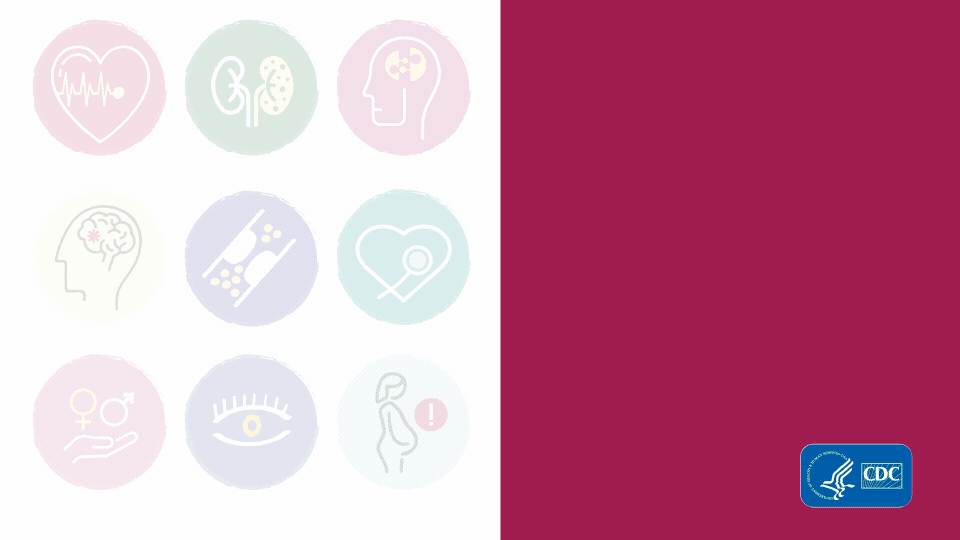The web Browser you are currently using is unsupported, and some features of this site may not work as intended. Please update to a modern browser such as Chrome, Firefox or Edge to experience all features Michigan.gov has to offer.
What's New
Get Moving This April: Celebrate Move More Month & National Walking Day!
April is Move More Month, a perfect time to focus on adding more physical activity to your daily routine. Regular movement not only lowers the risk of heart disease and stroke, but also boosts energy, improves mood, and supports overall well-being.
Whether you’re walking along the Detroit Riverwalk, hiking in the Upper Peninsula, or dancing in your living room, every step counts!
Mark your calendar for National Walking Day on April 2, 2025, and take time to enjoy Michigan’s beautiful parks, trails, and neighborhoods.
Walking is one of the simplest and most effective ways to stay active. Try these easy ways to add more steps to your day:
- Take a walk during your lunch break or after dinner
- Explore Michigan’s many parks and trails with a friend or a pet
- Walk instead of driving for short trips
- Invite a friend or a family member to join you for a walk
The Michigan Moves Coalition is bringing communities together to inspire more movement and healthier lifestyles across the state. Learn how you can get involved at MiMoves.org.
Looking for more inspiration? Discover 10 great reasons to get moving today from the CDC: Read More.
What You Should Know About Stroke and High Blood Pressure
A stroke is a medical emergency that can happen to anyone, at any age and at any time. Know the facts! You can take steps to reduce the risk of having a stroke by taking some simple steps.
- Avoid smoking, vaping, and secondhand smoke.
- Get adequate sleep.
- Eat healthy foods that are low in saturated and trans fats.
- Limit your alcohol consumption.
- Get at least 150 minutes of active movement in every week. This will help you to keep a healthy weight and, as a bonus, can help you decrease your stress and help you sleep better too! Check out www.livetothebeat.org
These lifestyle recommendations also work against high blood pressure.
Do you know your blood pressure numbers? High blood pressure is a leading cause of strokes, as well as kidney disease, cardiovascular disease, dementias, and other life-altering conditions.
Regular medical checkups are important to detect and manage blood pressure. If you have high blood pressure, take your medications as directed, measure your blood pressure often, and talk to your doctor about additional things you can do to minimize your risk of high blood pressure and stroke.
Do You Know the Signs of a Stroke?
Stroke was the 4th leading cause of death in Michigan in 2022. A person having a stroke needs to get to the hospital as soon as possible, and quick recognition can save lives!
YOU can make a difference. Use the memory tool B.E. F.A.S.T. to recognize the signs of a stroke:
- Balance: Sudden loss of Balance;
- Eyes: Loss of vision in one or both eyes;
- Face: Face looks uneven;
- Arms: Arm or leg is weak and/or hanging down;
- Speech: Speech is slurred or person is having trouble speaking or seems confused; and
- Time: If you see any of these symptoms, it's time to act F.A.S.T.!
Call 911 and get the person to the hospital as soon as possible to help ensure the best possible chance of recovery.
Pregnant? Learn About Preeclampsia
Do you know that pregnancy and the six weeks after giving birth is a time when birthing people are at higher risk of a life-threatening high blood pressure condition called preeclampsia?
From 2015 to 2019, complications related to high blood pressure caused more pregnant Michigan individuals to die than any other reason.
Be sure to keep your prenatal and post-delivery appointments, and watch your blood pressure and blood sugar. Make sure to know the warning signs for preeclampsia, such as increased swelling, headache, and shortness of breath. If you experience any of these, talk to your doctor without delay!
For more information, visit the Preeclampsia Foundation at www.preeclampsia.org.
Did You Know Blood Pressure Can Affect Your Brain Health?
It is normal for your brain to change as you get older. Having healthy blood pressure can lower your risk for memory loss and confusion. Follow your healthcare provider's guidance to manage your blood pressure.
- Monitor your blood pressure.
- Do not use tobacco products.
- Practice good sleep habits.
- Be physically active.
- Eat healthy meals.
- Maintain a healthy weight.
- Limit alcoholic beverages.
- Manage stress.
- Take medications as prescribed.
For more information about blood pressure, visit the Centers for Disease Control and Prevention High Blood Pressure website.
Return to Cardiovascular Health, Nutrition & Physical Activity Section home page
Please Note: Although we make every effort to ensure that our website is compliant with current Americans with Disabilities Act (ADA) standards, some of the links on this page may lead to outside websites that are not ADA-compliant.






